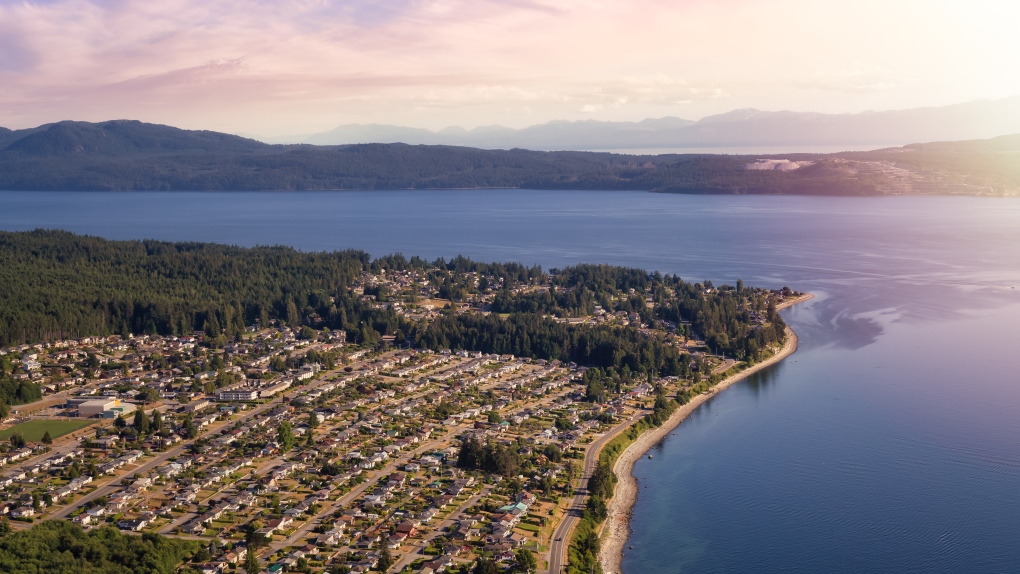Latest News
- 'Truly a Christmas miracle': Black bear cub survives burns in northern British Columbia
- Mexico seizes Olympic medals, motorcycles in massive operation, possibly in pursuit of Canadian fugitive Ryan Wedding
- Canadian government suspends ban on single-use plastics exports
- More than 300 pistachio products recalled following ongoing salmonella outbreak
- Anita Anand supports Greenland's sovereignty; Washington once again talks about annexing the territory
Latest Ads
-
Jasmine Jewel
Call
-
Omidan group
Call
-
Amir Madanpour
Call
-
Dimo studio
Call
-
Yorkacademy
Call
-
Maryambagheri
Call
-
Shishlix Restaurant
Call

Powell River divided over potential name change
Powell River, a small town on the sunny coast of British Columbia, is embroiled in a dispute over a possible name change.
With a population of more than 13,900, Powell River, located about 120 kilometers northwest of Vancouver, has been at the center of a heated debate between the city council, the Tlaamine Nation and a number of residents.
In 2021, the nation of Tlaamine asked the city of Powell River to consider a name change — which provincial legislature MP Nicholas Simmons said has created a deep rift in the community.
"Some say there's a divide, but that doesn't necessarily mean an equal split," Simmons said in a community special live on CBC's "On the Island." "Many young people recognize that part of reconciliation is reconciliation with our history."
He says while community input can influence the final decision, it's ultimately the province that makes the final decision.
Powell River is named after Israel Powell, Superintendent of Indian Affairs in British Columbia in 1872.
According to information from a joint city task force formed to discuss the name change with residents, Powell has a history of engaging Indigenous peoples in the Euro-Canadian community, including condemning the potlatch (traditional gift-giving) ceremony, supporting the establishment of Boarding schools and encouragement to allocate more land for indigenous families.
Vern Kinley, 81, is a member of the Concerned Citizens group, which opposes the proposed name change.
"My daughter died here, my brother died here and my wife and I are both going to die here," Kinley said, adding that he couldn't imagine calling Powell River anything else.
He says the community's identity is linked to this name, and changing that identity would endanger it.
Kinley adds that the group is concerned about Israel Powell's negative record by ignoring the "really good things" he has done for First Nations.
For the people of Telamin, Powell's history with boarding schools has been a reminder of a traumatic period.
John Hackett, who holds the title of Chief (the elected head of the legislature that oversees the administration of the Tlaamin Nation), indicated a desire for change in a recent newsletter published by the nation.
"The city's name is a constant reminder of the abuses inflicted on indigenous children for over a century," he said. He added: "Creating trust with the whole community has been necessary."
"Tlaamin's goal is to progress ... I feel like the tide is turning, we have to continue to work together to make that happen."
Mellat Tlaamin did not respond to CBC News' requests for an interview.
Powell River Mayor Ron Voznow says the city is looking to include a referendum on the name change as part of the 2026 mayoral election.
Since receiving the request, he says, the city has worked to share information widely and give "citizens an opportunity to express their feelings."
"What we want to do is make sure that what happens is very positive for both the nation of Tlaamin and ourselves in five years, 10 years, 50 years."
Pat Martin, 70, says he's concerned about the city's efforts to decide on a new name before residents vote.
Martin, who is not a member of the Concerned Citizens group, said, "The council has repeatedly indicated at meetings that they don't need to weigh that vote, and I don't think that's true."
Martin adds that many people in the community are afraid to share their thoughts on the issue for fear of being called racist.
news source
Suggested Content
Latest Blog
Login first to rate.
Express your opinion
Login first to submit a comment.
No comments yet.


































